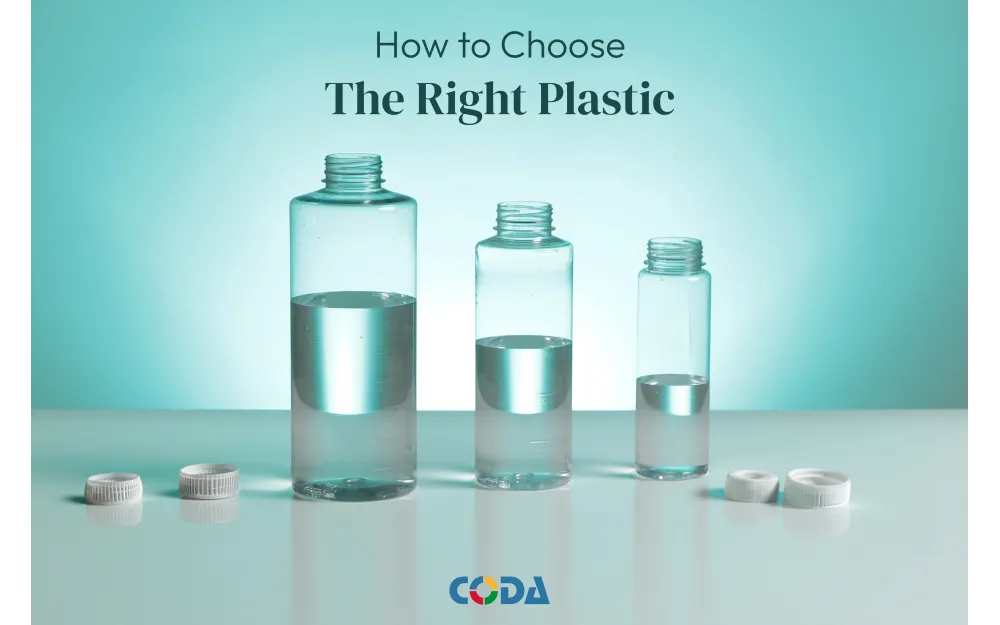
As the science of plastics progressed over the last century or so, companies raced to patent new polymer chains, resulting in thousands of commercial options for plastic. With so many choices available, how should a new entrant to the market have a clue which plastic to choose for their bottles, caps and closures?
Fortunately, most of these patented plastics have a very narrow application or have fallen out of regular use. The commonest plastics used today fall into just 7 categories. And our manufacturing experts are on hand to help our commercial partners choose the correct plastic for your products. So how do we go about this?
Different plastics have different properties. These features (which include things like strength, cost, durability, elasticity and chemical resistance) help us partner the plastic with the product.
Let’s think about some properties that might be important for certain bottles and closures.
- Non-Toxicity. A drinks bottle must be made from a food safe plastic - i.e. a plastic that is sterile and will not impart any flavour or absorb or react in any way with the natural acids contained in the liquid within.
- Chemical Resistance. The bottle and cap for a chemical based cleaning product must not degrade when in contact with the chemical it contains.
- Flexibility. A fliptop cap with a ‘living hinge’ should not snap within the expected lifetime and normal use of the product.
- Durability. This property might be more important for a plastic product that the end user will use lots of times, than for a product that is intended to be used once and then recycled.
- Cost. In all instances, companies will want to keep costs down. For instance, there are many engineering grade plastics that are technically food safe, but we would not recommend them for a drinks bottle when PET has all the same properties, is far easier to source and recycle, and is significantly cheaper.
The way we approach choosing the right plastic for bottles and closures is to think about the product, its purpose, its contents, its likely use and its expected lifetime. Then we select the plastic that meets the criteria. Where more than one plastic is a possibility, then we can advise on other factors that might be relevant such as the impact on shipping weight and cost.
We want any potential new clients to be reassured that they will not be expected to make these kinds of choices unaided. Our experienced team will be on hand to guide you at every step of the manufacturing process - ensuring that your finished products are safe, legal, high quality and cost-effective.
Our factory in East Anglia is equipped to handle orders of all sizes and our full service includes storage and delivery all over the UK and beyond. Call us today on +44 1692 501020 or email sales@coda-plastics.co.uk
